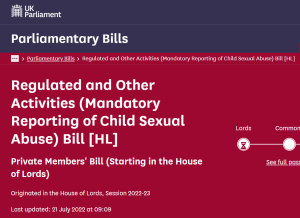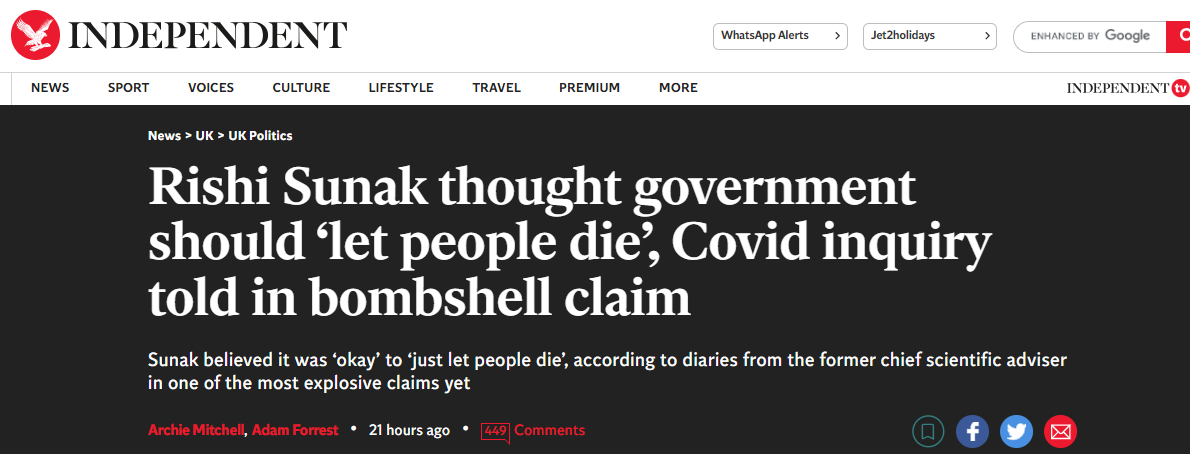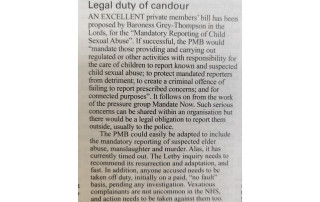Index of News Articles
UPDATE: On 16 July 2022 we updated our proposal for the introduction of mandatory reporting of child sexual abuse. A few days later Baroness Tanni Grey-Thompson tabled it in her Private Members Bill. Lady Grey-Thompson’s bill would have had a significant positive impact on institutional safeguarding unlike the lamentable IICSA final report recommendation of 20.10.22.



